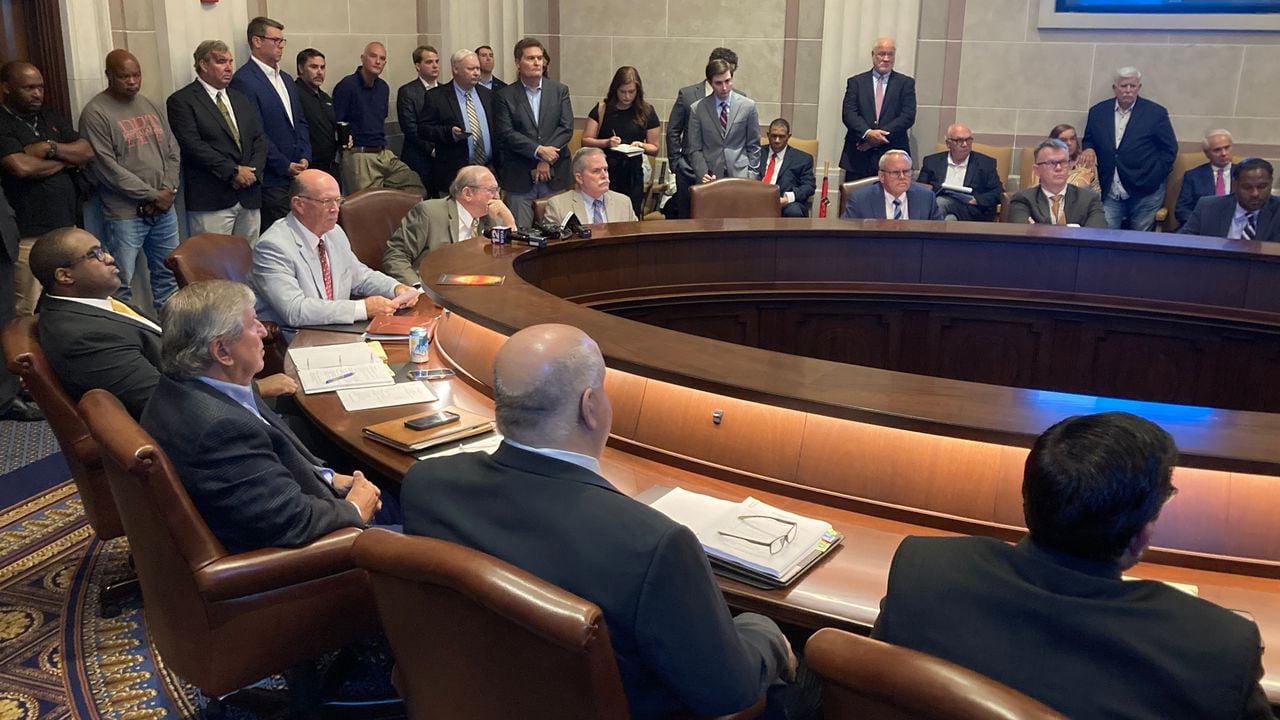Alabama aims to get medical cannabis started despite lawsuits
The Alabama Medical Cannabis Commission will issue licenses to companies to start the state’s new medical marijuana industry on Friday unless a court intervenes.
During a Zoom meeting on Thursday, the commission approved a motion declaring that it would not issue a stay on the licenses despite lawsuits and requests for investigative hearings by companies that were denied licenses.
On Dec. 1, the commission awarded licenses to 20 companies to cultivate, process, transport, test, and dispense medical cannabis. The commission distinguishes between “awarding” licenses and “issuing” licenses.
By rule, the commission will issue licenses 28 days after the awards, allowing time for companies to pay license fees and for inspections. The 28-day period ends Friday.
Commissioner Sam Blakemore, a pharmacist, made the motion declaring there would be no stay so that the licenses can be issued Friday, as scheduled.
“We’d like to move forward with these people, the slate of awards that we’ve had in the month of December, and just get this show on the road so the people can get the medicine,” Blakemore said.
The commission approved Blakemore’s motion by a vote of 7-2 with one abstention.
Commissioner Charles Price, a former judge, said the motion was not necessary because the licenses would automatically be issued unless the commission voted for a stay. Commissioner Loree Skelton, an attorney, said she did not think licenses should be issued while investigative hearings requested by companies that were denied licenses are pending. Twenty-six companies that were denied licenses have requested hearings, a process provided for in the commission’s rules.
But other commissioners said they wanted to make a statement that the commission would not put a hold on the process again, as it has done twice previously, unless ordered to by the court. The commission rescinded license awards it made in June and again in August because of the litigation and problems with its procedures. The lawsuits led to changes in the commission’s process, including conducting the meetings more openly and discarding scores compiled by third-party evaluators that were used during the first two rounds of license awards.
“In the past, when the commission has recognized that we had a glitch or potential problem, that’s when we imposed, self-imposed, a stay by the commission because we recognized we had a problem,” Commission Chairman Rex Vaughn said Thursday. “At this point in time, with where we are with the awarding of licenses, we don’t feel like we have a problem and we’re ready to move forward and that’s what this declaration of not imposing a stay, that’s what it says.”
Justin Aday, general counsel for the commission, said all license fees have been paid. Scott Absher, compliance director for the commission, said he had inspected 31 sites and found no major problems so far. Inspections will continue, Absher said.
“I can happily report to the commissioners that everybody is on track,” Absher said. “They are simply awaiting their licenses. Some of them are awaiting licenses in order to get their building permits from the cities or municipalities that their facilities are residing in. But everybody seems to be well on their way to getting a viable industry up and running.”
Lawsuits challenging the commission’s decisions and processes continue. Montgomery County Circuit Judge James Anderson held a hearing Thursday morning on requests by companies denied licenses to put a hold on the process.
Aday gave a report on the hearing to commission members during Thursday’s meeting. Aday said Anderson took no immediate action on the requests by some companies to block the licensing process after hearing from lawyers on both sides.
“Certainly, there are proceedings that will be ongoing with these matters,” Aday said. “And the court could entertain requests that have been made for temporary restraining orders and injunctions and those types of things. But nothing restraining the commission from its meeting today or the agenda it has before it.”
Also on Thursday, the commission approved a motion to hire a hearing officer to conduct the investigative hearings requested by companies denied licenses, a step that was expected.
In addition to the licenses awarded on Dec. 1 that are scheduled to be issued on Friday, the commission awarded integrated licenses to five companies on Dec. 12. Those are companies that will perform multiple functions in the new industry — cultivating, processing, transporting, and dispensing. Those licenses are scheduled to be issued on Jan. 9.
The licensing process has been contentious, in part, because of the limited number of licenses available. The law authorizing medical marijuana, passed by the Legislature in 2021, limited the number of licensees in most categories. For example, more than 30 companies applied for the five integrated licenses.
If the licensing process continues and companies are able to begin work, officials have said products will be available by spring or summer of 2024.
Doctors who complete a certification process will be able to recommend medical cannabis to patients. For a patient to qualify for medical cannabis, the patient must have at least one of the qualifying conditions and be recommended for medical cannabis by a certified physician.
Qualifying conditions include chronic pain, weight loss and nausea from cancer, depression, panic disorder, epilepsy, muscle spasms caused by disease or spinal cord injuries, PTSD, and others.
Products can include gummies, tablets, capsules, tinctures, patches, oils, and other forms allowed by the legislation.
